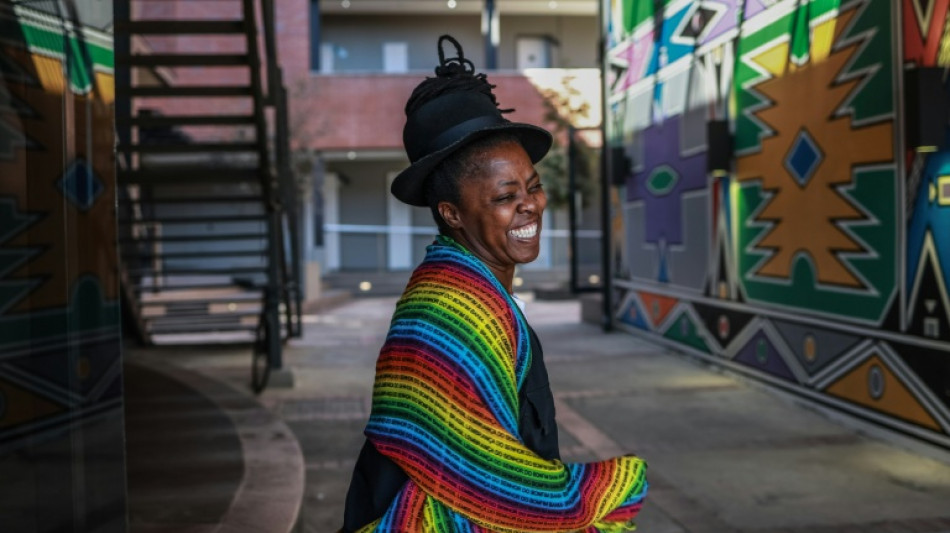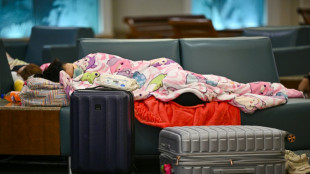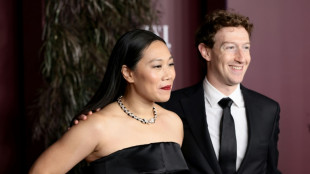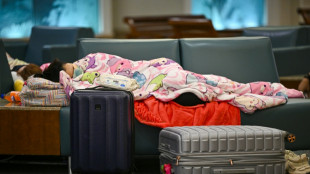

Zanele Muholi, S.African photographer reclaiming identity
Photography saved her from suicide and now internationally recognised South African visual artist Zanele Muholi, most known for her stark portraits of black LGBTQ communities, is using her success to empower others.
Muholi's growing renown keeps her busy: she has been working on a project about water in Panama and collaborating with a London non-profit for a show next month, while also opening a new exhibition in Portugal.
It was a priority for her to get back to South Africa for last week's Black Women in Photography Conference, at the school in downtown Johannesburg where she started out 22 years ago.
Muholi arrived just in time from a stay in hospital in Panama, where she had fallen into a dump of medical waste during a photo shoot and been jabbed by a needle.
"It was a wake-up call to say that moving too fast could become something else," said Muholi, in her early 50s, her trademark dreadlocks sticking through the top of her hat.
"I'm grateful that I'm alive," she told AFP at the conference.
It was here at the Market Photo Workshop that Muholi took up photography, having moved to Johannesburg from KwaZulu-Natal province aged 19 and enduring a series of ordeals.
"I was on the verge of suicide," she said. "And then somebody told me it was either therapy or I find something creative to deal with. Then somebody told me about Markets."
Mentored by the school's founder, documentary photographer David Goldblatt, Muholi found expression as a "visual activist", producing a body of work of hundreds of black-and-white portraits, many of herself.
She first focused her lens on South Africa's black LGBTQ community, often victims of homophobia and hate crimes that have seen lesbian women targeted for "corrective rape".
Muholi later created bronze statues, some displayed in France's famed Jardin des Tuileries for the 2023 Art Basel Paris.
"Nowadays, I'm looking at broader topics like water, like power, but women and children and queer and trans people will always be dear to me," she said.
- 'Rampant hate' -
South Africa is the only country on the continent to have legalised same-sex marriage, and its post-apartheid Constitution of 1996 enshrines sexual orientation as a human right.
But 30 years after the end of white-minority rule, the country ranks among the worst in the world on inequality, and gender-based violence is a feature of its high crime rate.
"The struggle is real, because people are still suffering on a daily basis," Muholi said. "We have rampant hate, gender-based violence."
But "what I like most about South Africa is that we get to report about this pandemic".
Whereas other countries downplay or ignore racism and discrimination in their societies, "we call things by name... we have names for things. We have dates for things".
"Even though there are still glitches there and then, the fact is that we have laws in place that protect us and protect our people," Muholi said.
- 'Recognise our worth' -
Muholi -- who identifies as non-binary but sometimes uses the pronouns she and her as well as they and them -- is excited about training and empowering others to document their lives through photography, reclaiming the outsider's view.
"The whole point is to make sure that... we are able to articulate our issues and speak loudly and we're proud, without fear of how the outsiders will perceive us or regard us," she said.
It is a mission for the continent.
Beyond "all the negative things that are captured on TV, there's this beauty that people don't talk about or mention when they speak of Africa. They look at Africa as this primitive place that needs to be saved, whereas a lot was stolen from us," Muholi said.
"It is about time that we as Africans get to realise and recognise our worth, because Africa is the richest continent."
The Market Photo Workshop, from where Muholi's own step into international renown began, is one platform for inspiring other talent, as is the visual arts training centre she launched in 2021, the Muholi Art Institute.
"I was saved by someone else. I need to save a lot of lives," she said. "I get to share what I'm doing with many people who might be in the same, you know, stagnant world."
T.Kogler--NWT



